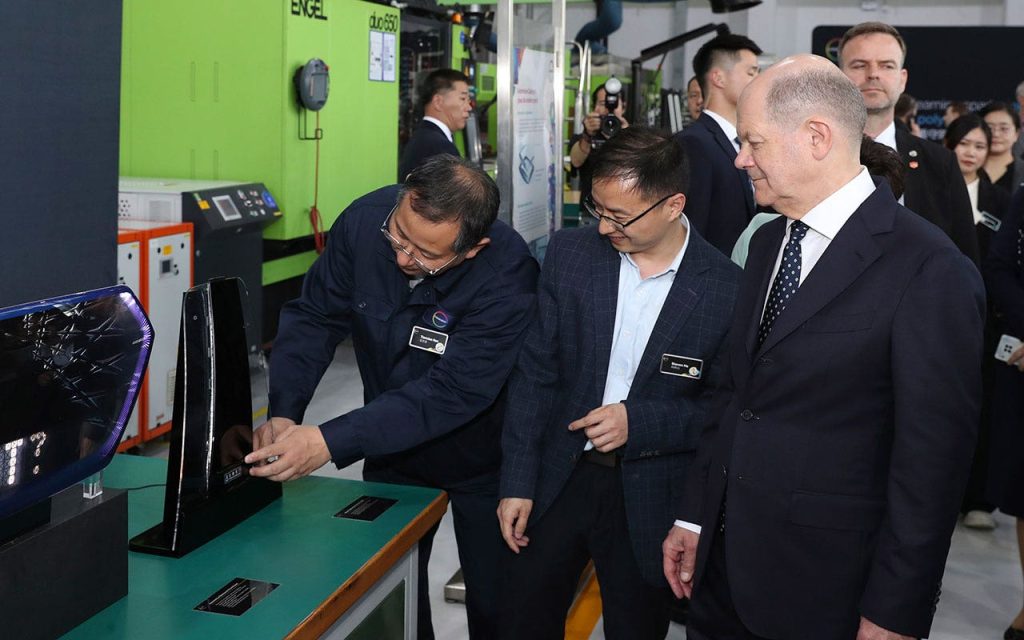German Chancellor Olaf Scholz expressed concerns to Chinese leader Xi Jinping on Tuesday regarding Russia’s invasion of Ukraine, stating that it poses a threat to global security. Scholz criticized Russia’s actions as violations of the UN Charter’s principle of national border inviolability, and urged Xi to use China’s influence with Russia to end the war. Scholz emphasized that the use of nuclear weapons in this conflict should not even be threatened. Despite China’s refusal to criticize the invasion, the two leaders reaffirmed their commitment to the U.N. Charter and their opposition to the use of nuclear weapons.
China has been providing an economic lifeline to Russia, helping it cope with sanctions from the West. While the Chinese government claims it is not sending military aid to Moscow, a U.S. intelligence report revealed that China has increased equipment sales to Russia to indirectly support its war effort. Scholz urged Xi to use his influence with Russia to persuade President Putin to end the conflict and withdraw troops from Ukraine. The Chinese statement stressed support for efforts conducive to a peaceful resolution of the crisis and called for an international peace conference recognized by both Russia and Ukraine.
During discussions on trade and economic issues, Xi and Scholz emphasized the need to remain vigilant against protectionism and unfair trade practices. Scholz called for fair competition in trade, highlighting concerns about dumping and overproduction. The European Union and the United States have raised issues about unfair competition by China through tariffs, intellectual property theft, and political interference. Scholz sought concrete improvements in market access, fair competition, intellectual property protection, and the legal system to create the right conditions for German companies operating in China.
With tensions escalating in the region, German lawmakers ruled out sending troops to Ukraine in response to Russia’s actions. Despite political and trade frictions, China remains Germany’s top trading partner for the eighth consecutive year. Scholz’s visit to China aimed to address trade-related tensions and seek ways to strengthen economic ties while upholding principles of fair competition and market access. The European Union is considering tariffs to protect its producers from cheaper Chinese imports, particularly in the electric vehicle sector.
Scholz’s visit to China highlighted the complexities of balancing economic interests with political and security concerns in the current global landscape. China’s economic relationship with Russia and Germany adds a layer of complexity to international efforts to address the conflict in Ukraine. While China has refrained from criticizing Russia’s actions, diplomatic efforts are underway to encourage a peaceful resolution to the crisis. As global leaders navigate these challenges, cooperation and dialogue remain essential in mitigating threats to global security and stability.


